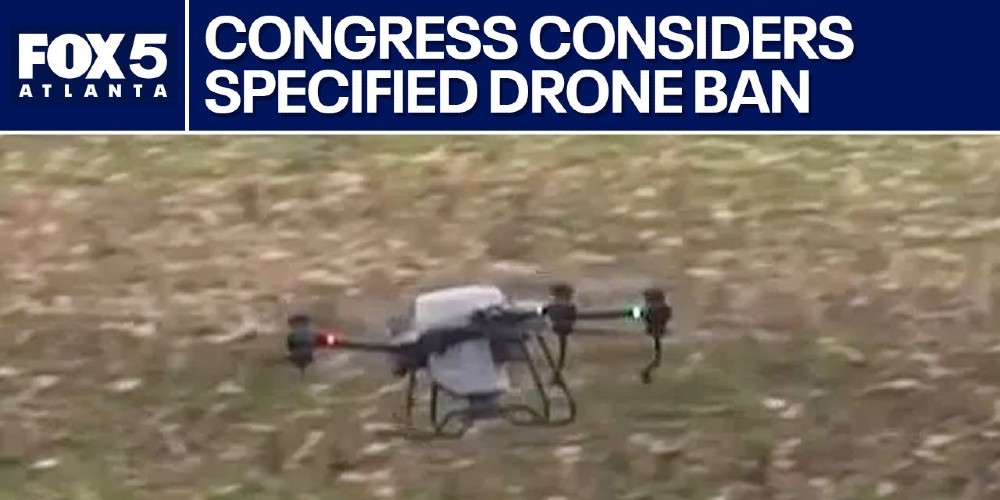The prospect of Congress banning drones from two major Chinese manufacturers has raised eyebrows and sparked serious concerns in Washington. Why is this happening now, and who stands to gain? The motivations behind such a drastic move are shrouded in suspicion, with the implications reaching far beyond mere national security.
So, why exactly might lawmakers push for a ban on these drones? Well, they point to two major issues: alleged security risks and claims of unfair competition. Some representatives are adamant that these drones could be used for surveillance purposes—a potential threat that should not be taken lightly.
Is it really about protecting American interests, or is this merely a politically motivated ploy designed to stifle competition from abroad? Critics have raised legitimate concerns over how these companies may collect sensitive data from U.S. citizens.
But wait—there’s more! These foreign manufacturers are reportedly dominating the market landscape, making it increasingly difficult for American drone companies to keep up. This monopoly not only threatens domestic businesses but also stifles innovation at home.
Now let’s take a look at how farmers rely on drones as crucial tools within their industry—not just toys flying overhead but essential instruments driving productivity forward. Imagine a drone soaring above expansive cornfields; its cameras can pinpoint areas needing urgent attention due to soil issues or pest infestations.
Without access to such advanced technology, farmers would find themselves caught in an uphill battle against time and resources as they try desperately managing their crops effectively.
Moving beyond agriculture reveals even more critical applications of drone technology we must consider seriously—especially during natural disasters where quick response times can mean saving lives! After hurricanes or wildfires devastate communities, it’s often drones that lead search-and-rescue operations or assess damage efficiently like never before.
Additionally—and notably—drones have emerged as vital assets combating public health crises by tracking diseases like malaria through mosquito population control efforts across various regions worldwide!
So what happens if Congress follows through with this proposed ban? Industries relying heavily on these cutting-edge devices face daunting challenges ahead—including farmers struggling alongside disaster response teams seeking alternatives while navigating uncertain waters created by bureaucratic red tape surrounding sourcing replacements quickly enough!
However lurking beneath those obstacles lies potential opportunity; supporters argue prioritizing U.S.-made innovations ultimately paves safer paths toward long-term economic growth without jeopardizing national security interests along the way!
Article generated with assistance from AI.
What Would You Do If Pharmacies Couldn’t Provide You With Crucial Medications or Antibiotics?
The medication supply chain from China and India is more fragile than ever since Covid. The US is not equipped to handle our pharmaceutical needs. We’ve already seen shortages with antibiotics and other medications in recent months and pharmaceutical challenges are becoming more frequent today.
Our partners at Jase Medical offer a simple solution for Americans to be prepared in case things go south. Their “Jase Case” gives Americans emergency antibiotics they can store away while their “Jase Daily” offers a wide array of prescription drugs to treat the ailments most common to Americans.
They do this through a process that embraces medical freedom. Their secure online form allows board-certified physicians to prescribe the needed drugs. They are then delivered directly to the customer from their pharmacy network. The physicians are available to answer treatment related questions.


